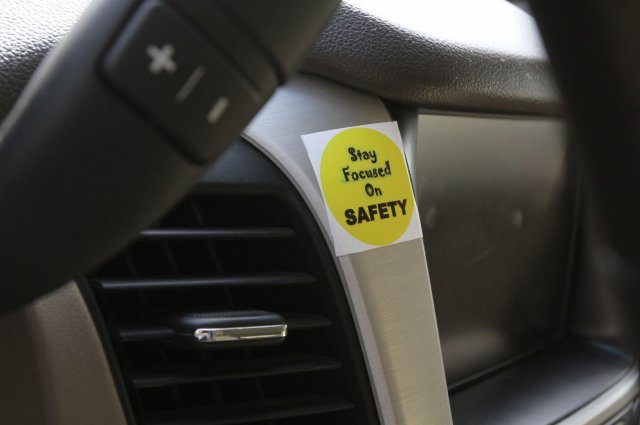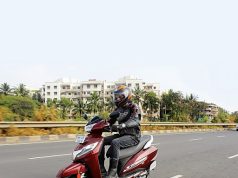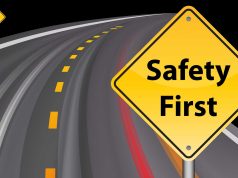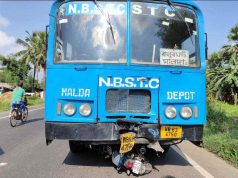Corporates and Road Safety in India- Blazing the Trail
During the recent Road Safety Week, there was much discussion in the media about road accident fatalities in India. To all of us lucky enough not be affected by such ghastly mishaps, these numbers are mere meaningless statistics. So, let’s try and put in some context.
In November 2018, Brown University in the US released a report under its ‘Cost of War’ Project. This report estimated that in a 17-year period from 2001 to October 2018, there have been an estimated 507,000 deaths directly as a result of the wars in Iraq and Afghanistan. Now compare this with the figures released by the Research wing of the Indian Ministry of Road Transport. According to the report, more than 1.5 million people died in India in road accidents between 2005-2016. In other words, in 11 years, the number of fatalities on Indian roads were three times the number of deaths from pitched battles, artillery and aerial bombardment, drone strikes and terror attacks in two wars over 17 years!
There are many reasons for this horrific death rate. The biggest one being, people’s ‘chalta hai or casual’ attitude. We are always on a run and when a road signal is broken the easiest approach, we feel is to bribe the cop. There are other reasons too, from road engineering, porous licensing procedures, ill-maintained vehicles, lack of road safety education as well as poor enforcement of rules and regulations and drink driving. However, all of these problems can be addressed, and people’s behaviour corrected.
We have been working for the last several years in the area of road safety. We partner with central and state governments, universities, law enforcement agencies, and knowledge partners to tackle this issue at a holistic level. We base our programme four pillars – Education on road safety, Enforcement of rules and regulations, Emergency Services and Engineering for Road Safety.
Our education efforts are directed into two areas. One is a high visibility public awareness campaign with Indian cricket captain Virat Kohli as the brand ambassador. The campaign has also seen enthusiastic participation and support by celebrities like Karishma Kapoor, Gul Panag, Kirron Kher and Chris Gayle. On-ground activations in pubs and restaurants urge revellers to have a Designated Driver. We have also been able to collect 20 million pledges from youngsters on Never Drink and Drive.
The second part of our education efforts is in partnership with the Ministry of Road Transport and Highways. We have devised the country’s first ever integrated formal training to university students seeking a learner’s license. The goal is to reach over 500 universities across the country in the next three to five years; with the first year’s target being 100 programmes across 50 universities. In partnership with Institute of Road Traffic Education in India (IRTE), we have also conducted driver training courses for over 6,000 commercial vehicle drivers To aid better enforcement, working with IRTE, we have trained 6,100 police officials as well as donated high-quality breath analyzers to police departments of several states.
For improving emergency services, we are working with oil companies to train their staff at petrol pumps to provide first aid and emergency response. We are also working with various state governments to conduct road safety audits as well as identify blind spots that can be corrected. Recently, we conducted a capacity-building programme for traffic and police departments of the union territory of Puducherry.
While the Union and state governments have been active in trying to make Indian roads safer, this is not a task for the government alone. It requires participation by corporates, civil society as well as concerned individuals. Happily, many more corporates are coming forward to spread awareness about road safety.
Bringing down the number of road accidents and associated fatalities need change at a behavioural level. This is a long drawn-out process. But as the two following examples will illustrate, if all sections of society work together, it is possible.
The first example is from Vietnam. By 2008, of the total 32 million registered vehicles in the country, 95% were motorcycles. However, since few Vietnamese used helmets, tens of thousands tended to die in road accidents. A coalition of charities, as well as multilateral aid agencies, carried out a decade-long campaign to raise awareness about helmet use. When surveys found out that the main reason why the Vietnamese were reluctant to use helmets was that they found it uncomfortable and unsuited for the country’s hot weather, these charities even designed a lighter helmet that was better suited for the country’s climate. This new helmet and a law passed by the government making helmet use compulsory has resulted in a dramatic shift in behaviour. Helmet use has gone up from 30% to over 95% and has resulted in a 69% reduction in injuries and a 42 per cent reduction in fatalities from road accidents.
The second example is from our own country. In 1992, alarmed by the rate AIDS was spreading in India, the government set up the National Aids Control Programme with representation in each state. A sustained campaign by the government, health workers, NGOs and civil society has meant that the last decade has seen a 50% decline in new infections. Undoubtedly, India still has a huge population of people suffering from HIV/AIDS (in fact, the third largest in the world), but that the battle for behaviour change is being won can be seen from the fact that the rate of AIDS prevalence has been dropping year on year.
We need similar concerted action in the area of road safety with participation from every stakeholder. Most importantly, we need to implement these programmes aimed at education, enforcement, emergency services and engineering on a mission mode. We need to remember that every day we allow the present situation to prevail, 400 more of our people will die an unnecessary death on our roads.
Abanti Sankaranarayanan leads the Strategy and Corporate Affairs functions at Diageo India (United Spirits
Ltd), and is a member of its Executive Committee. Her responsibilities include Alcohol Policy, Regulatory & Trade matters, Market Access, Corporate Communications & Reputation and programs to address alcohol
misuse, champion responsible consumption and deliver Social Impact. As head of Strategy, Abanti leads strategy development & execution for Diageo’s business in India.
Views of the author are personal and do not necessarily represent the website’s views.
Thank you for reading. Please drop a line and help us do better.
Regards,
The CSR Journal Team














